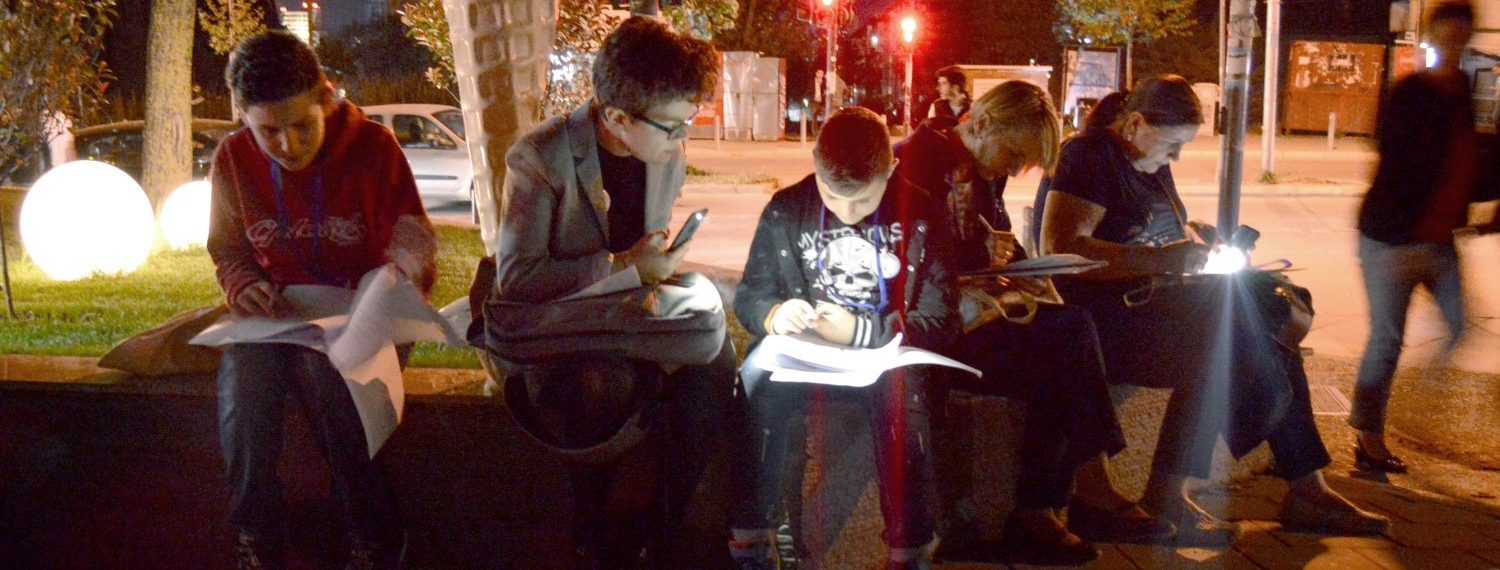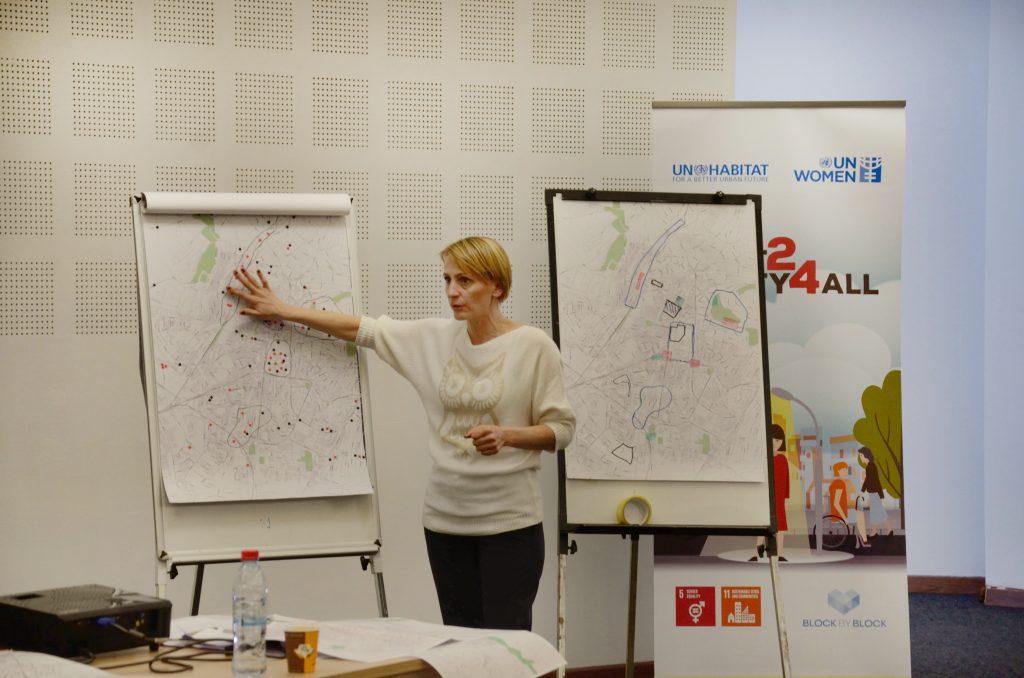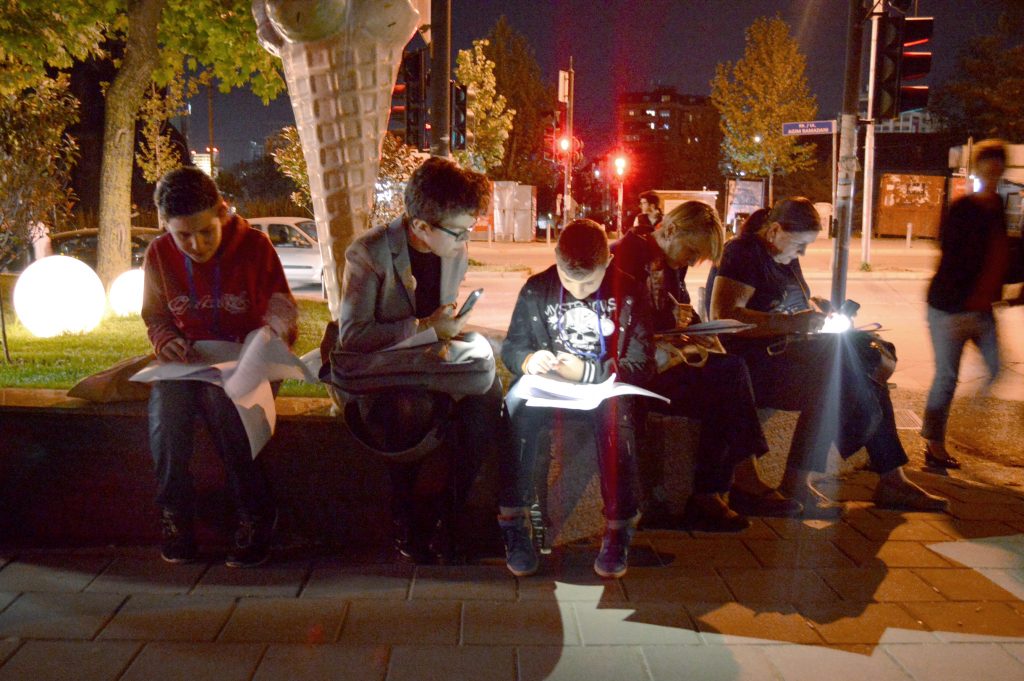- Media Center
 Right to the City for All in Kosovo and more gender-inclusive public space!
Right to the City for All in Kosovo and more gender-inclusive public space!15/03/2019
Citizens are demanding that governments be more responsive in delivering public services, including those related to urban safety and the use of public space. At the same time, civil society networks report that urban safety issues continue to impact how women and girls perceive and use public space. This calls for further participatory and evidence-based public policy development in addressing the needs and priorities of urban dwellers, with a particular emphasis placed on the experiences of women and girls, since their right to the city is often adversely affected by feelings of insecurity and fear of crime and violence.
In that context, UN-Habitat and UN Women, the municipality of Pristina and university, police and women’s groups, joined forces to draw baselines and targets for the state of public space (including gender-based violence), echoing Sustainable Development Goals measurement and implementation monitoring. The initiative also pioneered the facilitation of inter-institutional mechanisms for improved urban safety at the municipal level. The project’s achievements include greater institutional understanding and capacity in addressing crime in public spaces and the fear thereof and its relationship to urban design, achieved through successful women’s safety audit and Minecraft charrette supporting the design of safer and more accessible public spaces, as well as improved public space policy development and responsive institutions. More than forty women and girls and men and boys participated in Safety Audit processes conducted in one of the highlighted security hot-spots in the city center “the City Park”. The Concept Design for the City Park about to be implemented by the Municipality, and that include a range of design interventions such as: removal of surrounding fences, path improvement, lighting improvement, ramps for strollers and wheelchairs, playgrounds and open fitness areas, etc., will benefit the entire neighborhood, around 15.000, and other local visitors.
The project not only laid the foundation to continue addressing public spaces and the gendered aspects of urban safety with additional policy infrastructure and professional capacity and a stronger institutional coalition, but also promoted in Kosovo and its neighbours the need to have a holistic approach to addressing gender-based violence in public spaces.
For more updates please follow our programme Facebook page




